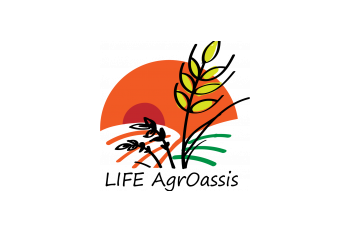
Regenerative approaches for building climate change resilience in EU agricultural regions prone to desertification
October 2022 - December 2026
AgrOassis
https://laona.org/the-project-life-agroassis
The primary objective of AgrOassis is to assist climate change adaptation in the agricultural sector of the EU’s two most south easterly countries, Cyprus and Greece, and beyond. To meet the objectives of the EU legislation and policy on climate action AgrOassis will develop, demonstrate and promote innovative techniques, best practices, methods and approaches, as well as close-to-market solutions in areas currently exposed to desertification. As a consequence of inappropriate land use and wildfires, these areas are expected to become even more vulnerable under climate change. The project will also markedly contribute towards climate change mitigation, promote carbon farming and biodiversity restoration. The latter will be achieved by promoting effective re-growth of trees and shrubs in degraded field margins and by aiding pollination processes, in regions of poor soil quality and very low natural vegetation cover.
While regenerating ecosystem services within degraded agroecosystems, AgrOassis will also seek to identify and remove obstacles related to inappropriate governance and policies that obstruct the implementation of the EU’s Green Deal Agenda and the aim of reaching climate neutrality by 2050.
Preparatory work for AgrOassis, has identified Cyprus as a hotspot of unsustainable soil management practices connected to widely applied tillage. This appears as an indirect side-effect of government policies aiming to enforce CAP EU legislation, as well as a direct result of inappropriate counselling towards farmers and inadequate training on how to combat desertification. AgrOassis also attempts to mobilize the private sector by utilizing available unexploited resources to promote the circular economy concept in the agro-sector of Cyprus.
At the same time, the project will mobilize private investment towards close-to-market solutions on green waste sustainability and sustainable soil management in line with the EU’s Farm to Fork Strategy. The project is based on three main implementation actions to address resilience in agricultural ecosystems:
- Soil improvement by mulching and minimum or no-tillage
- Resilient hedgerow installation in burnt and/or degraded agricultural land
- Sustainable production of compost and its application on degraded soils

